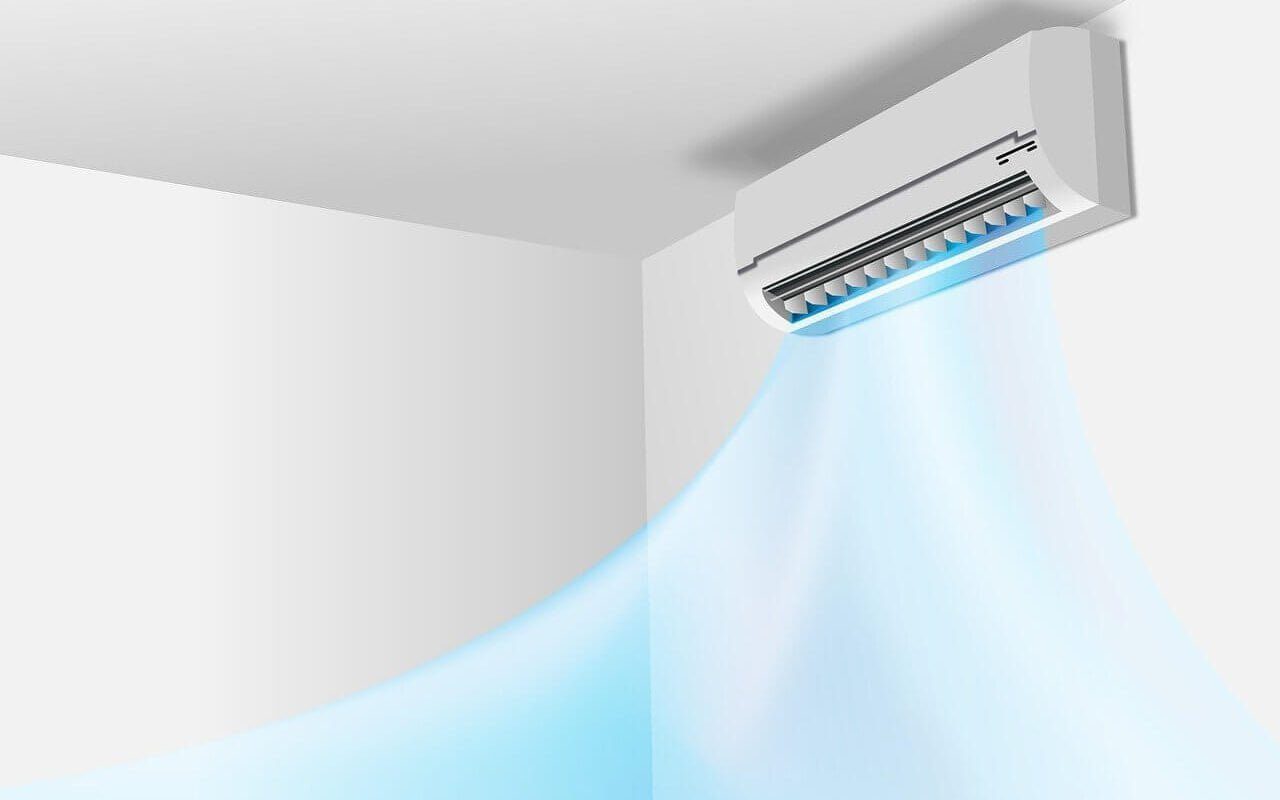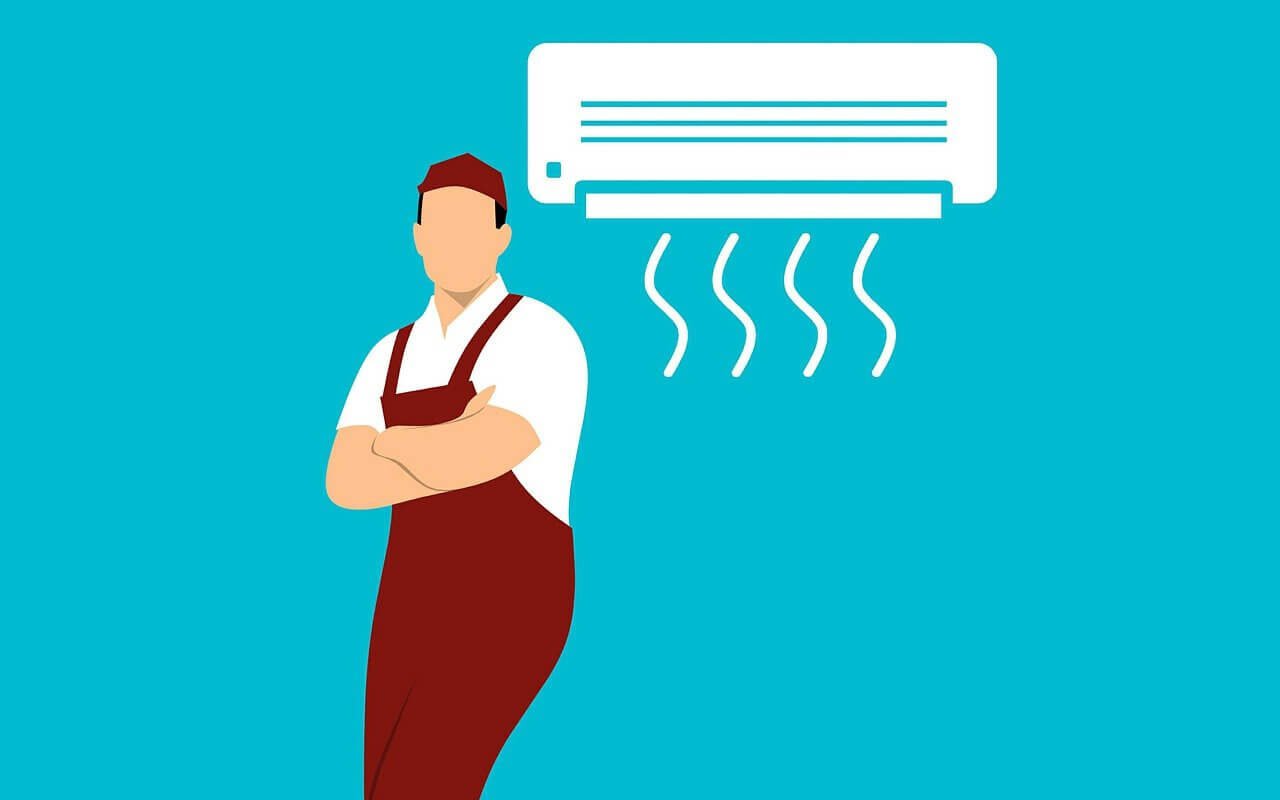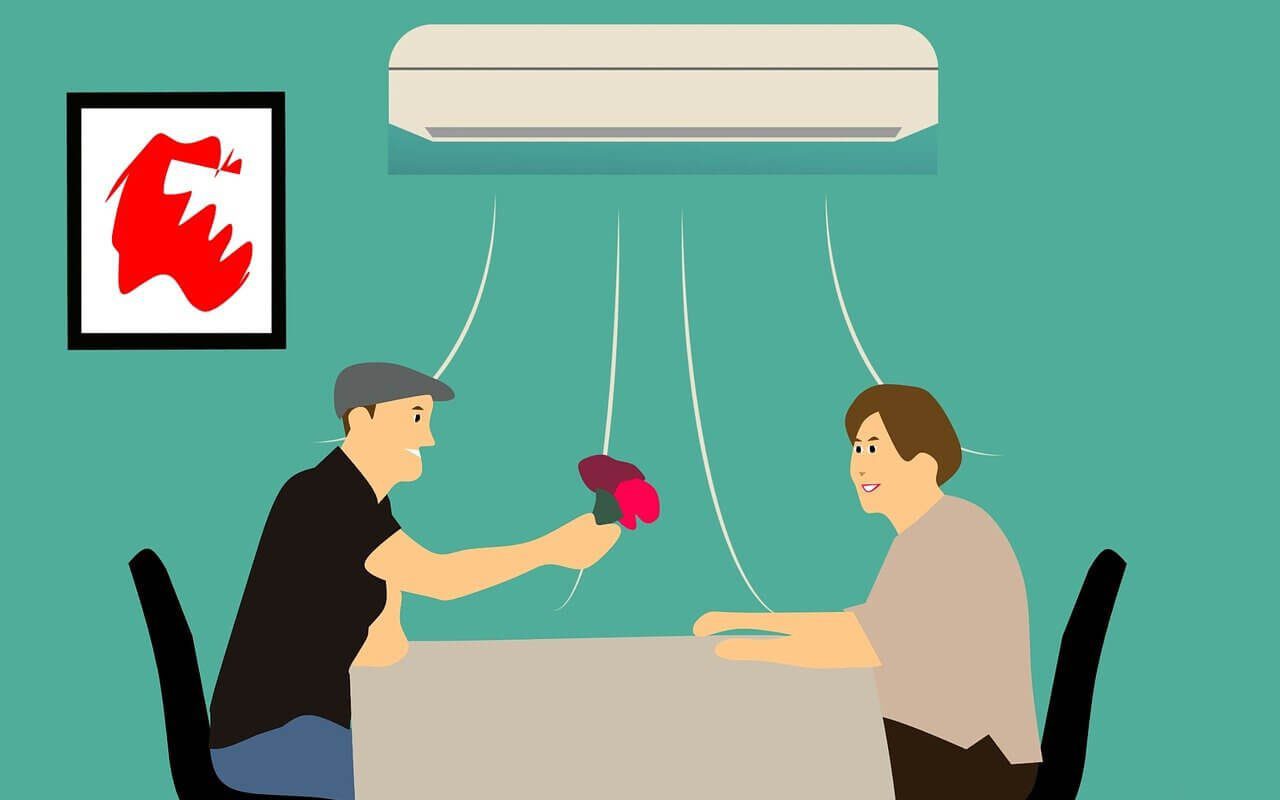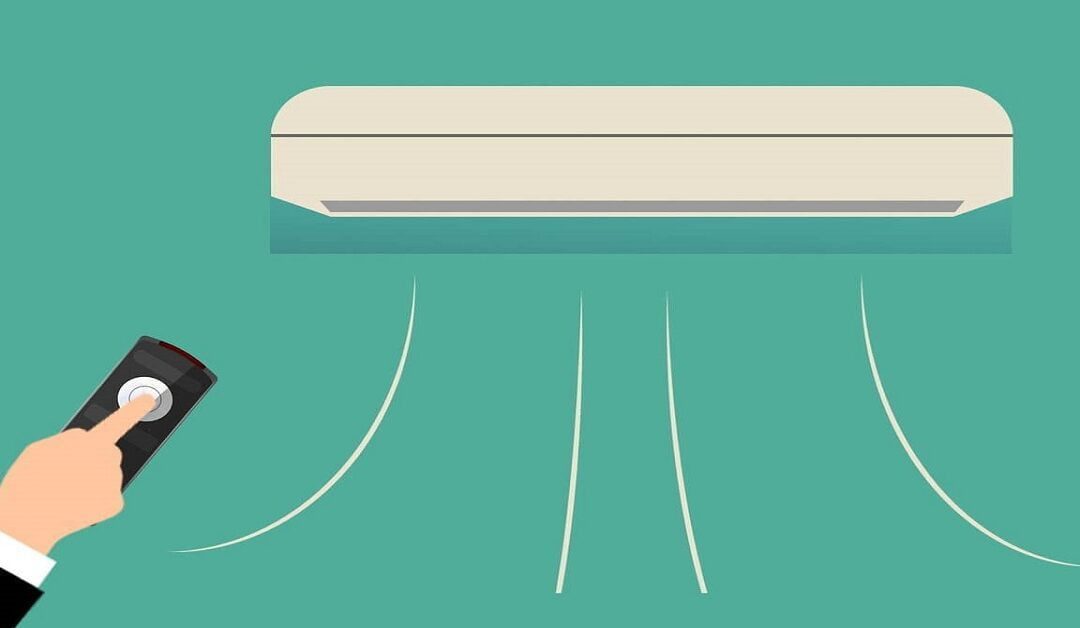In the sweltering heat of summer, air conditioning is a beloved ally for staying cool and comfortable. However, despite the pleasant breeze it provides, but you may have a concern like is ac gas harmful and the potential health impacts of air conditioning have emerged.
People often wonder, “Is AC bad for our health?” Additionally, questions regarding the harm caused by AC gas have gained attention.
Now, we will delve into the subject, exploring the possible adverse effects of air conditioning on our health and uncovering the truth behind AC gas if is ac gas harmful or not.
Page Contents
- Part 1: The Pros and Cons of Air Conditioning
- Part 2: Potential Health Risks from Air Conditioning
- Part 3: Is AC Gas Harmful and Its Potential Harm
- Sick Building Syndrome
- Dry Skin and Eyes
- The Influence on the Immune System
- Mental and Cognitive Effects
- Energy Consumption and Climate Change
- Alternatives to Traditional AC
- Personal Habits for a Healthy Environment
- FREQUENTLY ASKED QUESTIONS
Part 1: The Pros and Cons of Air Conditioning
Comfort and Temperature Regulation: Air conditioning offers undeniable comfort by maintaining a pleasant indoor temperature, which can be particularly beneficial for individuals with certain medical conditions or during heat waves.
Air Quality: One crucial aspect affected by air conditioning is indoor air quality. While a well-maintained AC system can filter out allergens, pollutants, and dust, inadequate maintenance can lead to the accumulation of harmful particles, potentially exacerbating respiratory issues.
Humidity Balance: Air conditioning helps control humidity levels, preventing excessive moisture that can lead to mold growth and related health problems. However, extremely dry air from AC systems can cause dry skin, dry eyes, and respiratory discomfort for some individuals.
Part 2: Potential Health Risks from Air Conditioning
Respiratory Problems: Air conditioning can cause dryness in the respiratory system, which can irritate the nasal passages, throat, and eyes, especially in people who already have respiratory problems.
Some symptoms may include a dry cough, congestion, and a sore throat which can make you feel restless.
Allergies and Asthma: Improper maintenance of AC systems can contribute to the accumulation of allergens such as dust mites, pollen, and pet dander.
These allergens, when circulated by the AC, can trigger allergies and worsen asthma symptoms in susceptible individuals.
Spread of Infections: Air conditioning systems can facilitate the spread of airborne illnesses, such as the common cold or flu, in enclosed spaces.
Air reuse which happens in AC can increase bacterial levels, increasing the possibility of transmission of the bacteria to your body more easily.
Temperature Shock: Frequent transitions between extreme outdoor temperatures and highly air-conditioned indoor environments can cause temperature shock to the body, leading to headaches, muscle pain, and even cardiovascular stress in some cases.

Part 3: Is AC Gas Harmful and Its Potential Harm
Refrigerants and AC Gas: Air conditioners use refrigerants, commonly known as AC gas, to cool the air. Previously, most of the people were using AC having chlorofluorocarbons (CFCs) which is not good for health hence, causing substantial environmental risks.
Now the time has changed thus the Advanced technology has emerged where Modern air conditioning machines has invented which typically use hydrofluorocarbons (HFCs), which have a smaller impact on the ozone layer.
Environmental Concerns: While HFCs have a low ozone layer impact, they are powerful greenhouse gases that are linked to global warming and climate change.
HFCs are being transitioned out globally, and more ecologically friendly replacements are being promoted nowadays which makes it less harmful for the ozone layer.
Direct Health Effects: The direct health effects of AC gas on individuals are limited. However, in case of a refrigerant leak, HFCs can displace oxygen, leading to oxygen deprivation if present in high concentrations.
Furthermore, some individuals may experience respiratory irritation or headaches due to exposure to leaked refrigerants.Air conditioning undoubtedly offers respite from the scorching heat, improving our comfort and well-being.
However, it is especially important to be aware of the potential health dangers which is connected with air conditioning if you use it regularly or constantly then you may face some issues such as respiratory issues, allergies, and infection spread.
While AC gas itself poses minimal direct harm, still you have a thought that is ac gas harmful the environmental impact of refrigerants is a significant concern that requires attention and the adoption of greener alternatives.
To strike a balance, it is crucial to maintain proper AC system hygiene, ensure regular maintenance, and promote adequate ventilation in enclosed spaces.
By doing so, we can enjoy the benefits of air conditioning while minimizing its potential health risks, fostering a healthier and more sustainable indoor environment.

Is AC gas harmful to health? Yes, and Here are some reasons Why
Sick Building Syndrome
You must ensure to have your ac service on time as if you don’t do then you may suffer some syndrome because Poorly maintained air conditioning systems can contribute to the phenomena known as “sick building syndrome.”
This syndrome occurs when building people living suffer from a variety of health concerns, including headaches, exhaustion, and respiratory disorders, as a result of poor indoor air quality.
Factors such as inadequate ventilation, improper filtration, and the accumulation of pollutants can contribute to this syndrome.
Dry Skin and Eyes
Air conditioning can deplete moisture from the air, leading to dry skin and eyes. Skin irritation, itching, and cracking on face and body can result from prolonged exposure to dry air.
It may also aggravate pre-existing conditions such as eczema. So try to avoid long hours to be there to avoid this kind of symptom on the skin.
Additionally, dry eyes can result in discomfort, redness, and blurred vision, particularly for those who wear contact lenses.
The Influence on the Immune System
Based on certain research, extended exposure to air-conditioned spaces can negatively impact the immune system.
The body’s natural defence mechanisms can be affected by the lack of exposure to natural elements and changes in temperature and humidity, potentially making individuals more susceptible to infections.

Mental and Cognitive Effects
While the physical health implications of air conditioning are often discussed, its impact on mental health and cognitive function is gaining attention.
Extended periods spent in artificially controlled environments can lead to a disconnect from the natural world, potentially affecting mood, concentration, and overall well-being.
Energy Consumption and Climate Change
We all know that Air conditioning consumes a lot of energy, which adds to higher greenhouse gas emissions and exacerbates climate change that negatively affects the climate as it uses a lot of energy.
The demand for cooling is expected to rise significantly in the coming years, posing environmental challenges. Developing energy-efficient cooling technologies and adopting sustainable practices can help mitigate these issues.
Alternatives to Traditional AC
Exploring alternative cooling methods can provide healthier and more sustainable options. Natural ventilation, such as opening windows or using ceiling fans, can be effective in moderate climates.
Water-based evaporative cooling systems are both energy-efficient and harmless to the environment. So you can have some water or natural based cooling system which will not affect the environment and your pocket as we all have to pay the electricity bill and if you are using it is much more than the one who doesn’t use it as AC consume lots of electricity.
Additionally, passive cooling techniques, such as building design and shading, can reduce the reliance on air conditioning.
Personal Habits for a Healthy Environment
Apart from addressing the potential drawbacks of air conditioning, certain habits can contribute to a healthier indoor environment.
Regular cleaning and maintenance of AC systems, changing filters regularly, and keeping the temperature moderate can help minimize health risks. Adequate ventilation, exposure to natural light, and taking breaks outside to connect with nature can also enhance well-being.
While air conditioning is a quick method to give instant relief from the heat on warm days which gives comfort from the heat but it is critical to be mindful of its potential health and impact on the environment.
From respiratory concerns to allergies, the spread of infections, and the environmental consequences of AC gas, there are valid concerns to consider.
By striking a balance between comfort and well-being, practising proper maintenance, exploring alternative cooling methods, and adopting sustainable habits, we can mitigate the potential health risks associated with air conditioning while ensuring a healthier and more sustainable future.
FREQUENTLY ASKED QUESTIONS
Does air conditioning affect indoor air quality?
Yes, poorly maintained air conditioning systems can lead to the accumulation of harmful particles, impacting indoor air quality and potentially worsening respiratory issues.
Can air conditioning cause dryness and skin problems?
Yes, prolonged exposure to air conditioning can cause dryness in the respiratory system and result in dry skin, leading to skin irritation and discomfort.
Does air conditioning spread infections?
Improperly maintained air conditioning systems can facilitate the spread of airborne illnesses like the common cold or flu, as they recirculate air and increase pathogen concentration.
Is AC gas harmful to the environment?
AC gases, such as hydrofluorocarbons (HFCs), have a significant environmental impact as potent greenhouse gases, contributing to climate change.
How can I minimize the health risks of air conditioning?
Regular maintenance and cleaning of AC systems, proper ventilation, and humidity balance are essential to minimize health risks. Taking breaks outside, practicing good hygiene, and considering sustainable cooling alternatives can also help mitigate potential issues.

